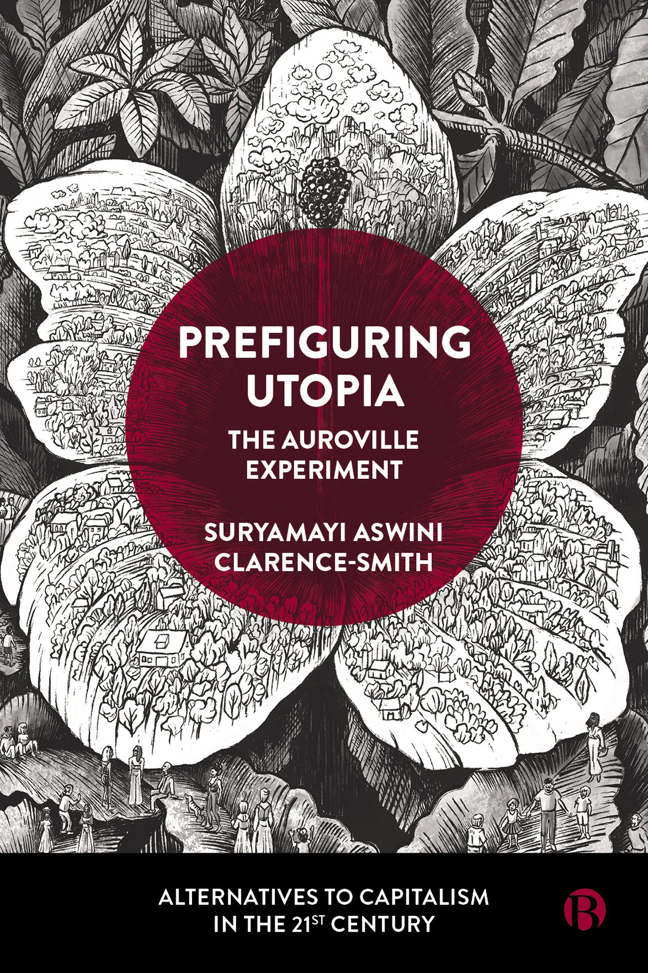Book contents
- Frontmatter
- Dedication
- Contents
- List of Figures and Tables
- Glossary
- About the Author
- Acknowledgements
- Foreword
- 1 All Life is Yoga: An Introduction
- PART I Culture
- PART II Polis
- PART III Economy
- Afterword
- Appendix A A Dream (The Mother, 1954)
- Appendix B The Auroville Charter (The Mother, 1968)
- Appendix C To Be a True Aurovilian (The Mother, 1971)
- Notes
- References
- Index
4 - Divine Anarchy? The Development of the Auroville Polity
Published online by Cambridge University Press: 24 January 2024
- Frontmatter
- Dedication
- Contents
- List of Figures and Tables
- Glossary
- About the Author
- Acknowledgements
- Foreword
- 1 All Life is Yoga: An Introduction
- PART I Culture
- PART II Polis
- PART III Economy
- Afterword
- Appendix A A Dream (The Mother, 1954)
- Appendix B The Auroville Charter (The Mother, 1968)
- Appendix C To Be a True Aurovilian (The Mother, 1971)
- Notes
- References
- Index
Summary
Introduction
‘What political organisation do you want for Auroville?’, someone asked The Mother in 1972, four years after the founding of the community. ‘An amusing definition occurs to me’, she replied: ‘a divine anarchy’ (The Mother, 2003b: 218). When she passed away in 1973, just five years after Auroville was founded, she left no blueprint for Auroville, no plan for how it should be governed – in her words, ‘organised’ (The Mother, 1977: 70) – nor any designated individuals who should assume this responsibility. While utopian communities were historically based on ideal blueprints that predetermined how society should be organized, Auroville was to be a prefigurative polity, destined to develop in tandem with the progressive spiritualization of its members. The kind of society that would emerge from this could not be anticipated: ‘Men must become conscious of their psychic being and organise themselves spontaneously, without fixed rules and laws – that is the ideal’ (The Mother, 2003b: 218).
In this chapter, we will explore the nature and development of Auroville as a polity, a community that has succeeded in sustaining and developing itself over 50 years, while securing autonomous arrangements for its internal administration. Even with this experiment in self-governance being presently threatened by the intervention of government-appointed administrators, its unique trajectory provides an unparalleled opportunity to assess the viability and evolution of horizontal modes of prefigurative collective decision-making and organization. While modes of horizontal organizing are used across various alternative political contexts, including social movements like Occupy Wall Street that are significantly larger in terms of participants than intentional communities, the scope of enactment of intentional communities is broader than that of organizing protests given that they seek to establish alternative societies. Auroville is an exceptionally large and long-lasting community to have engaged in a horizontal exercise of governance, and studying its experience in doing so yields rich insights into issues raised by participants and researchers regarding the sustainability, effectiveness and equitability of such forms of radical political practice (Graeber, 2013; Rowe and Carroll, 2015; Hardt and Negri, 2017).
Examining Auroville's unique relationship with the Indian government will offer nuanced points of consideration for how alternative societies might navigate the challenges of embeddedness in a mainstream political context and engage with mainstream institutions of power.
- Type
- Chapter
- Information
- Prefiguring UtopiaThe Auroville Experiment, pp. 57 - 79Publisher: Bristol University PressPrint publication year: 2023

